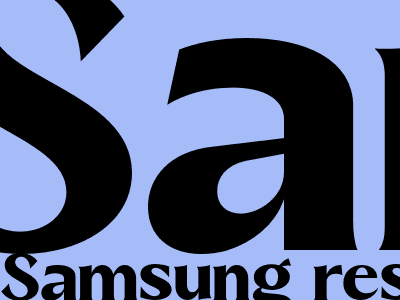
Revealed: Accessibility Crisis in UK Tech Market
Samsung Research Uncovers Digital Divide
Samsung Research has conducted a comprehensive study that exposes a prevalent accessibility crisis within the UK's technology industry. The findings reveal a significant gap between the digital experiences of disabled and non-disabled individuals.
The research highlights that around 14 million disabled people in the UK face barriers when interacting with technology, leading to reduced opportunities, social isolation, and overall well-being. Specifically, the study identified challenges in accessing essential online services, such as banking, healthcare, and education.
Inequitable Access to Digital Platforms
Web Accessibility Barriers
One of the primary barriers identified by the study is the lack of accessibility on many websites. Non-compliant websites fail to provide alternative text descriptions for images, making them inaccessible to screen readers used by visually impaired individuals. Similarly, insufficient keyboard navigation options hinder the accessibility of websites for individuals with mobility impairments.
App Accessibility Issues
The study also uncovered accessibility deficiencies in mobile applications. Many apps lack features like closed captions for videos, sign language interpreters, and adjustable font sizes, making them challenging to use for individuals with sensory or cognitive disabilities.
Impact on Employment and Education
Barriers to Employment
The accessibility crisis in the tech market has severe implications for disabled individuals seeking employment. Inaccessible career websites and lack of assistive technology support create obstacles in the job application process. Moreover, inaccessible company intranets and communication tools can hinder the productivity and career advancement of disabled employees.
Educational Disparities
The study also highlights the impact on disabled students. Inaccessible learning platforms and lack of assistive technology support can significantly hinder their academic progress. This can result in unequal access to education and reduced opportunities for personal and professional growth.
Urgent Need for Accessibility Solutions
Call for Industry Action
The findings of the Samsung Research study emphasize the urgent need for the tech industry to prioritize accessibility. Companies must invest in developing inclusive digital platforms that meet the needs of all users, regardless of their abilities. This includes implementing accessibility best practices, providing assistive technology support, and conducting regular accessibility audits.
Government Regulations and Standards
In addition to industry action, government regulations and standards can help ensure accessibility. Establishing clear accessibility guidelines and enforcing compliance can create a more level playing field for disabled individuals in the digital realm.
Conclusion
The Samsung Research study has brought to light a pressing accessibility crisis in the UK tech market. The findings highlight the significant barriers faced by disabled individuals in accessing essential digital services, gaining employment, and pursuing education. It is imperative that the industry, government, and society work together to create a more inclusive digital environment where everyone has equitable access to technology's benefits.